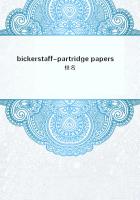It is true that friendships are apt to be disappointing: either we expect too much from them; or we are indolent and do not 'keep them in repair;' or being admitted to intimacy with another, we see his faults too clearly and lose our respect for him; and he loses his affection for us. Friendships may be too violent; and they may be too sensitive. The egotism of one of the parties may be too much for the other. The word of counsel or sympathy has been uttered too obtrusively, at the wrong time, or in the wrong manner; or the need of it has not been perceived until too late. 'Oh if he had only told me' has been the silent thought of many a troubled soul. And some things have to be indicated rather than spoken, because the very mention of them tends to disturb the equability of friendship. The alienation of friends, like many other human evils, is commonly due to a want of tact and insight. There is not enough of the Scimus et hanc veniam petimusque damusque vicissim. The sweet draught of sympathy is not inexhaustible; and it tends to weaken the person who too freely partakes of it. Thus we see that there are many causes which impair the happiness of friends.
We may expect a friendship almost divine, such as philosophers have sometimes dreamed of: we find what is human. The good of it is necessarily limited; it does not take the place of marriage; it affords rather a solace than an arm of support. It had better not be based on pecuniary obligations; these more often mar than make a friendship. It is most likely to be permanent when the two friends are equal and independent, or when they are engaged together in some common work or have some public interest in common. It exists among the bad or inferior sort of men almost as much as among the good; the bad and good, and 'the neither bad nor good,' are drawn together in a strange manner by personal attachment. The essence of it is loyalty, without which it would cease to be friendship.
Another question 9) may be raised, whether friendship can safely exist between young persons of different ***es, not connected by ties of relationship, and without the thought of love or marriage; whether, again, a wife or a husband should have any intimate friend, besides his or her partner in marriage. The answer to this latter question is rather perplexing, and would probably be different in different countries (compare Sympos.). While we do not deny that great good may result from such attachments, for the mind may be drawn out and the character enlarged by them; yet we feel also that they are attended with many dangers, and that this Romance of Heavenly Love requires a strength, a ******* from passion, a self-control, which, in youth especially, are rarely to be found. The propriety of such friendships must be estimated a good deal by the manner in which public opinion regards them; they must be reconciled with the ordinary duties of life; and they must be justified by the result.
Yet another question, 10). Admitting that friendships cannot be always permanent, we may ask when and upon what conditions should they be dissolved. It would be futile to retain the name when the reality has ceased to be. That two friends should part company whenever the relation between them begins to drag may be better for both of them. But then arises the consideration, how should these friends in youth or friends of the past regard or be regarded by one another? They are parted, but there still remain duties mutually owing by them. They will not admit the world to share in their difference any more than in their friendship; the memory of an old attachment, like the memory of the dead, has a kind of sacredness for them on which they will not allow others to intrude. Neither, if they were ever worthy to bear the name of friends, will either of them entertain any enmity or dislike of the other who was once so much to him. Neither will he by 'shadowed hint reveal' the secrets great or small which an unfortunate mistake has placed within his reach. He who is of a noble mind will dwell upon his own faults rather than those of another, and will be ready to take upon himself the blame of their separation. He will feel pain at the loss of a friend; and he will remember with gratitude his ancient kindness. But he will not lightly renew a tie which has not been lightly broken...These are a few of the Problems of Friendship, some of them suggested by the Lysis, others by modern life, which he who wishes to make or keep a friend may profitably study. (Compare Bacon, Essay on Friendship; Cic. de Amicitia.)
第一章***IS, OR FRIENDSHIP by Plato Translated by Benjamin Jowett PERSONS OF THE DIALOGUE: Socrates, who is the narrator, Menexenus, Hippothales, Lysis, Ctesippus.
SCENE: A newly-erected Palaestra outside the walls of Athens.
I was going from the Academy straight to the Lyceum, intending to take the outer road, which is close under the wall. When I came to the postern gate of the city, which is by the fountain of Panops, I fell in with Hippothales, the son of Hieronymus, and Ctesippus the Paeanian, and a company of young men who were standing with them. Hippothales, seeing me approach, asked whence I came and whither I was going.
I am going, I replied, from the Academy straight to the Lyceum.
Then come straight to us, he said, and put in here; you may as well.
Who are you, I said; and where am I to come?
He showed me an enclosed space and an open door over against the wall. And there, he said, is the building at which we all meet: and a goodly company we are.
And what is this building, I asked; and what sort of entertainment have you?
The building, he replied, is a newly erected Palaestra; and the entertainment is generally conversation, to which you are welcome.
Thank you, I said; and is there any teacher there?
Yes, he said, your old friend and admirer, Miccus.
Indeed, I replied; he is a very eminent professor.
Are you disposed, he said, to go with me and see them?
Yes, I said; but I should like to know first, what is expected of me, and who is the favourite among you?















